The Payroll Blog
News, tips, and advice for small business owners
What Does it Take to Be Sure?
Survey Explores Confidence in Decision-Making; Reveals Regrets
Empowering, paralyzing, or mundane. Decision-making is as much a part of life as breathing, eating, and sleeping.
While the research community doesn’t agree on how to accurately measure the number of decisions the average person makes each day—estimates range between 226 and 35,000—it’s clear we make a lot.
But what does it take to make us sure?

Quest for Confidence
When it comes to making big decisions, more than half (55%) of Americans put their faith in research and tried-and-true pro-and-con lists, according to a recent survey commissioned by SurePayroll.
Once they reached a decision respondents said they felt sure about their choice to make a large purchase or start a family within minutes or hours. Feeling confident about launching a business (21%) or investing a large sum of money (22%) took longer, sometimes up to months.
“The science of economics relies upon the notion that people make logical decisions. However, we’re complex creatures, and we’re not always logical thinkers. Many factors influence our thinking and affect our decision-making,” said Steve Stanton, Ph.D., associate professor of marketing, at Oakland University, who specializes in consumer behavior and neuromarketing.1 “We don’t have firmly established ways of making decisions; rather, we’re influenced by factors such as our emotions and mood.”
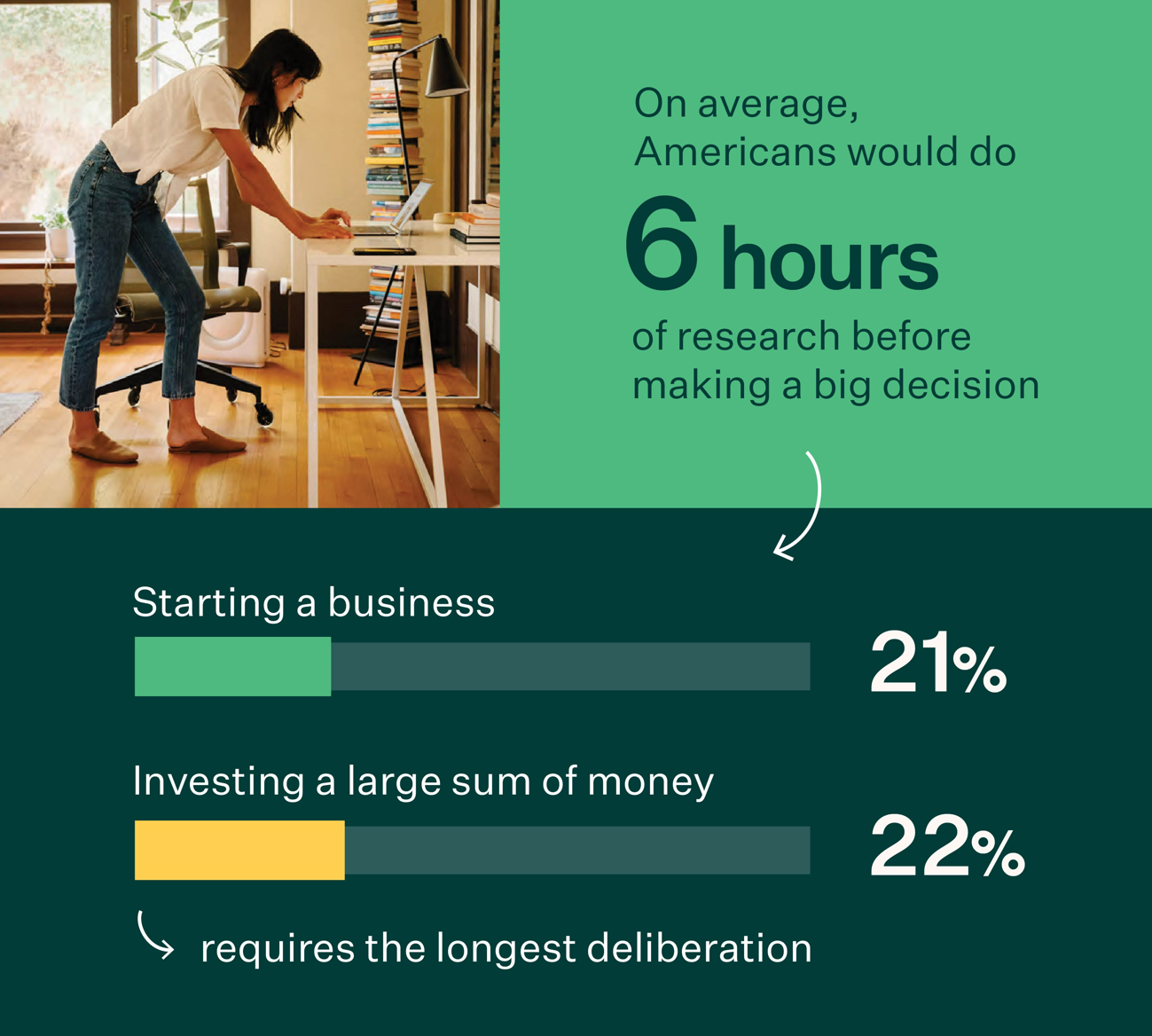
No matter how long it takes to decide, most Americans want to be sure.
For example, respondents agreed that making a significant purchase (60%), like a house, requires more certainty than the decision to get married or divorced (57%), start a family (44%), change jobs (48%) or move (40%).
Confidence Boosters
“Whether making large or small decisions, the survey shows people want to be sure about their decisions. The results highlight ways small business owners can help customers and prospects simplify and validate their decision-making process,” said Melissa Smiley, associate head of brand and content at SurePayroll.
Respondents said being able to trial an option (38%), doing extensive research (37%), and knowing it was successful for others (26%) would increase their confidence.
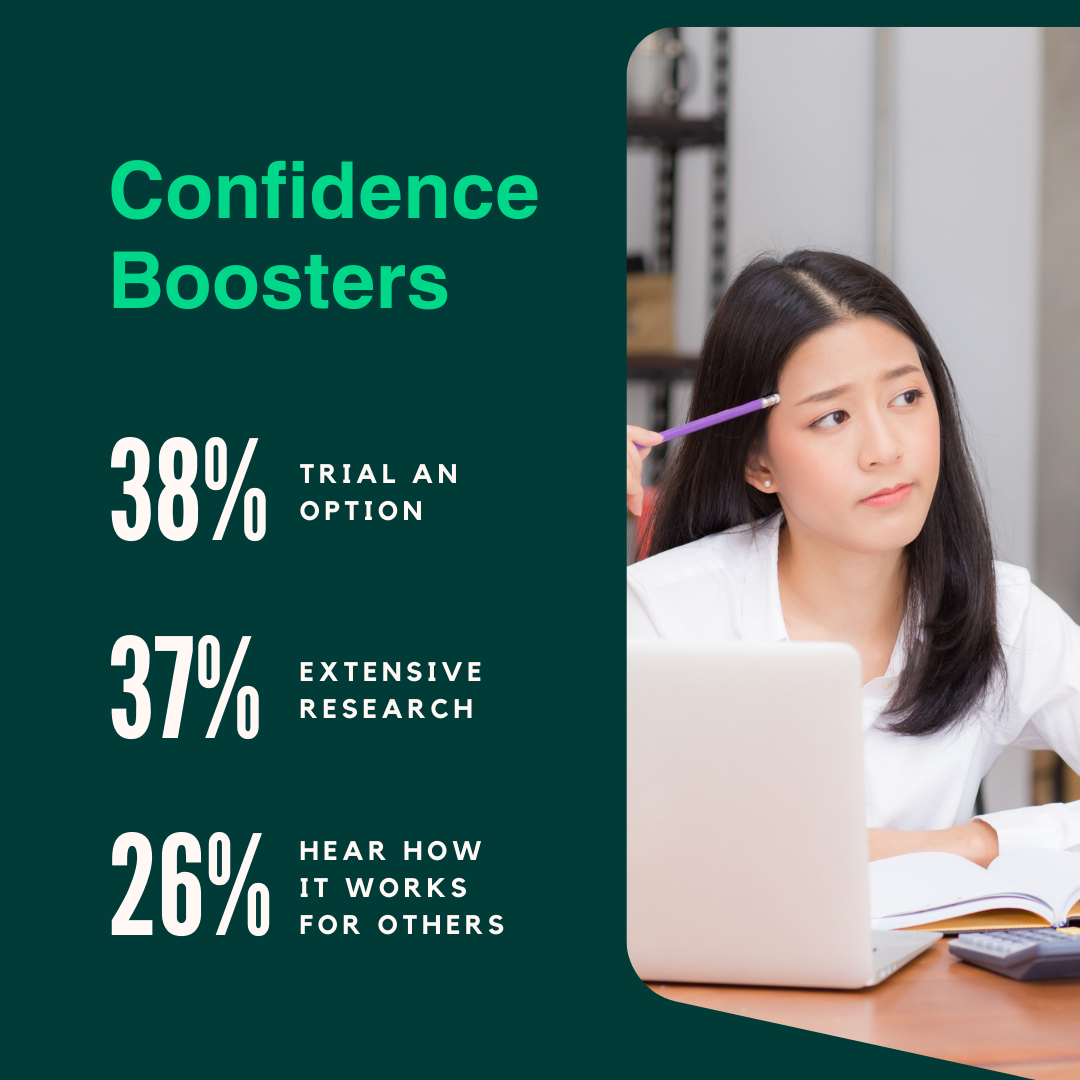
“With the faith people put in reviews and research, small business owners can boost customer confidence by adding a link to independent review sites to their home page, posting testimonials on social media, or providing a comparison against leading competitors,” said Smiley.
Despite their hours of research and pro-and-con lists, respondents admit to having regrets. Many feel contrite when it comes to their shopping choices.
Almost half are remorseful about purchases they made at big box stores citing concerns over quality (63%) and the business’s practices (60%). Gen Z (84%) and millennial (67%) respondents show the greatest concern about the business practices of big box stores, while product quality drove the largest regret in purchases from big box stores for Gen X (60%) and baby boomers (54%).
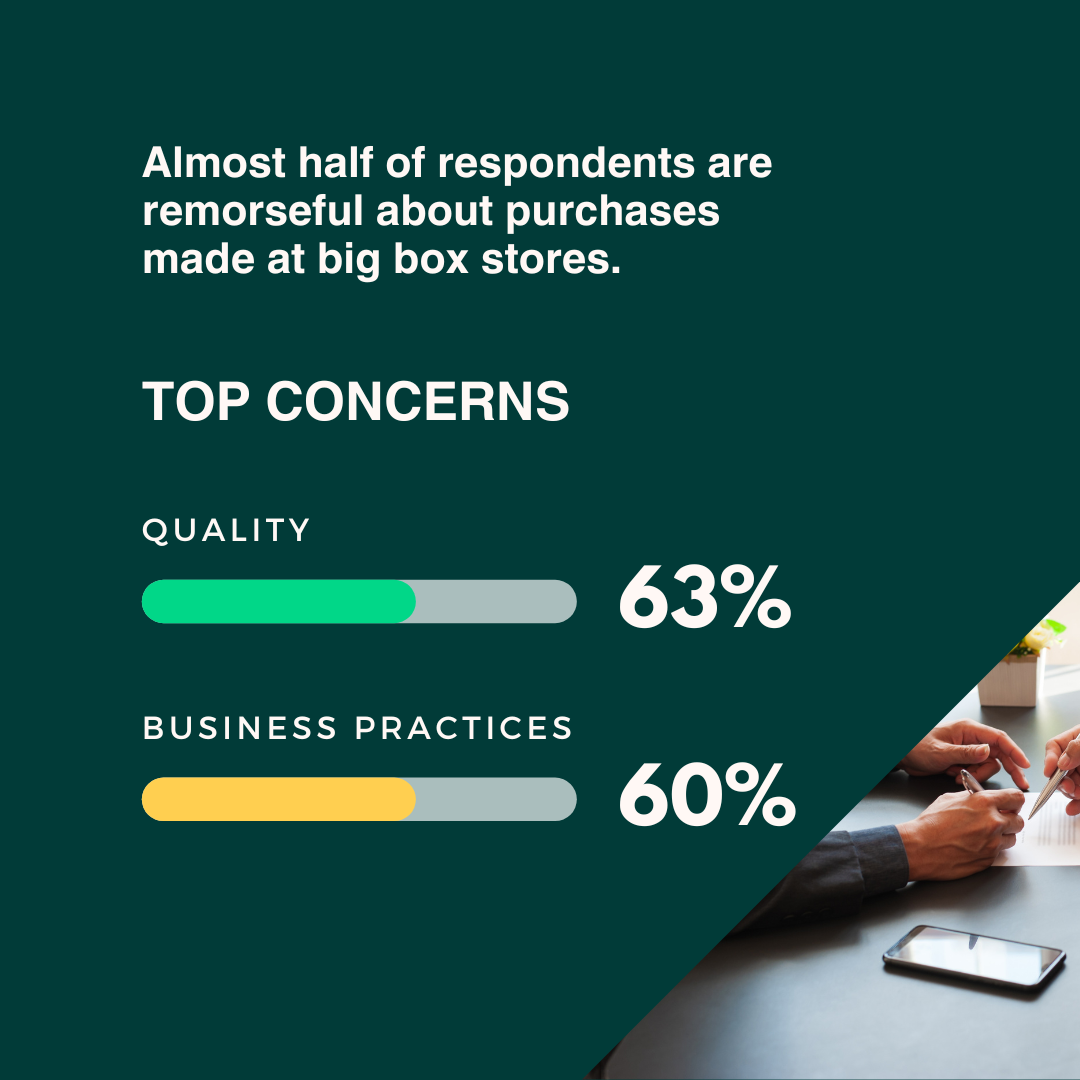
Overall, 23% believe spending more shopping with a local business is a better use of their money compared to saving at a large chain. Across generations, Gen Z respondents (31%) feel most strongly that spending their money with a local business is a better choice.
“Americans feel sure about shopping at small businesses. The level of personalized service they receive from a local business serves to validate their purchase decision better than a purchase from a chain,” said Smiley. “Americans clearly appreciate the vibrancy and support local businesses—owned and operated by those active in the community—bring to their economy and the communities in which they operate.”
Relationships and Regrets
Nearly three out of four Americans describe themselves as decisive, while one in six admit to being indecisive. Nearly half (46%) of the indecisive respondents seek more decisive partners.
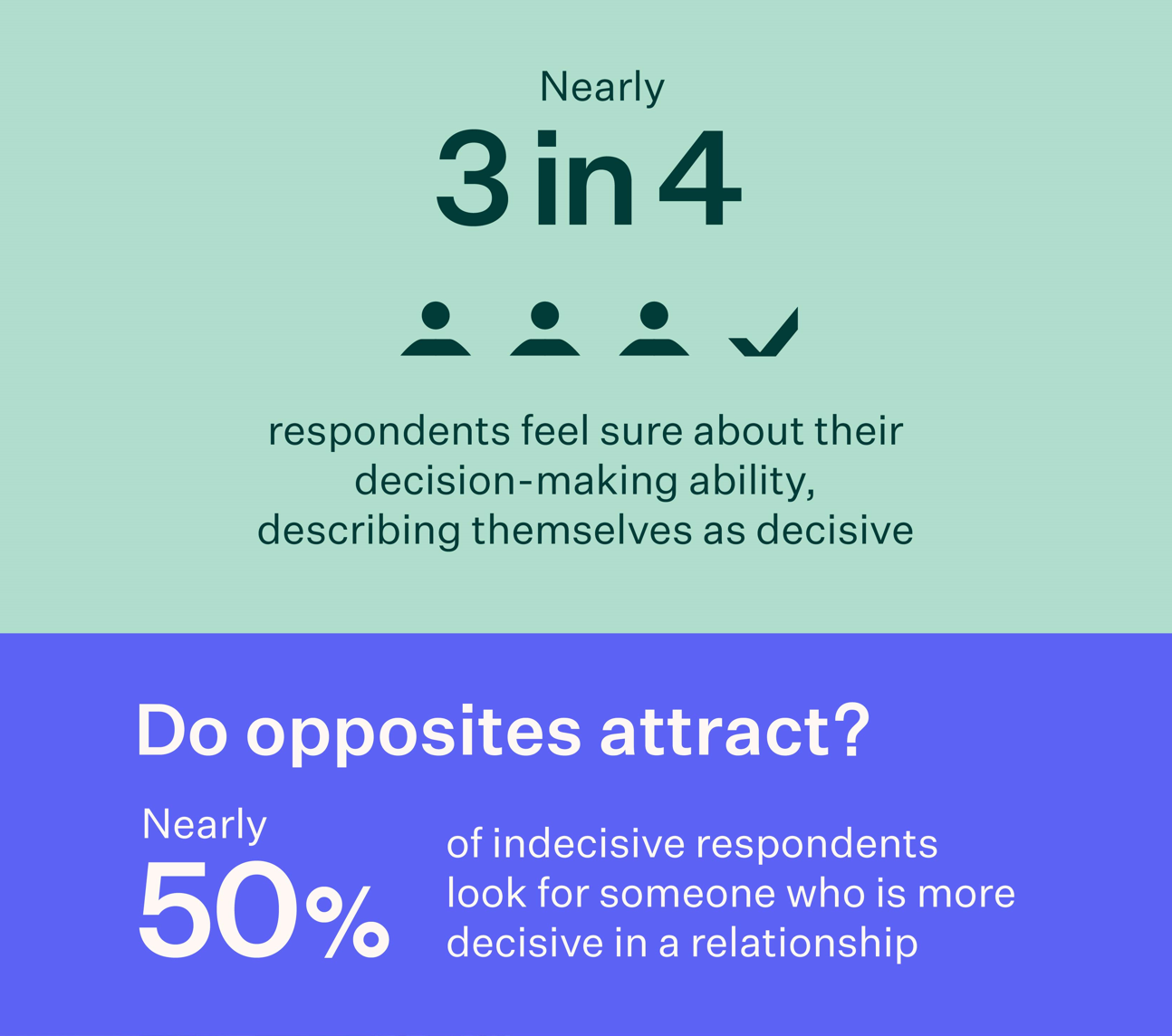
Even those who say they are decisive seek input before making money-related decisions—and not usually from their partner. Many put the advice of a co-worker (35%) or the news (29%) over their partner’s (18%).
Proceed cautiously with that advice because money mistakes could cost a relationship. The survey revealed that 40% of respondents have ended a relationship over a poor financial choice.
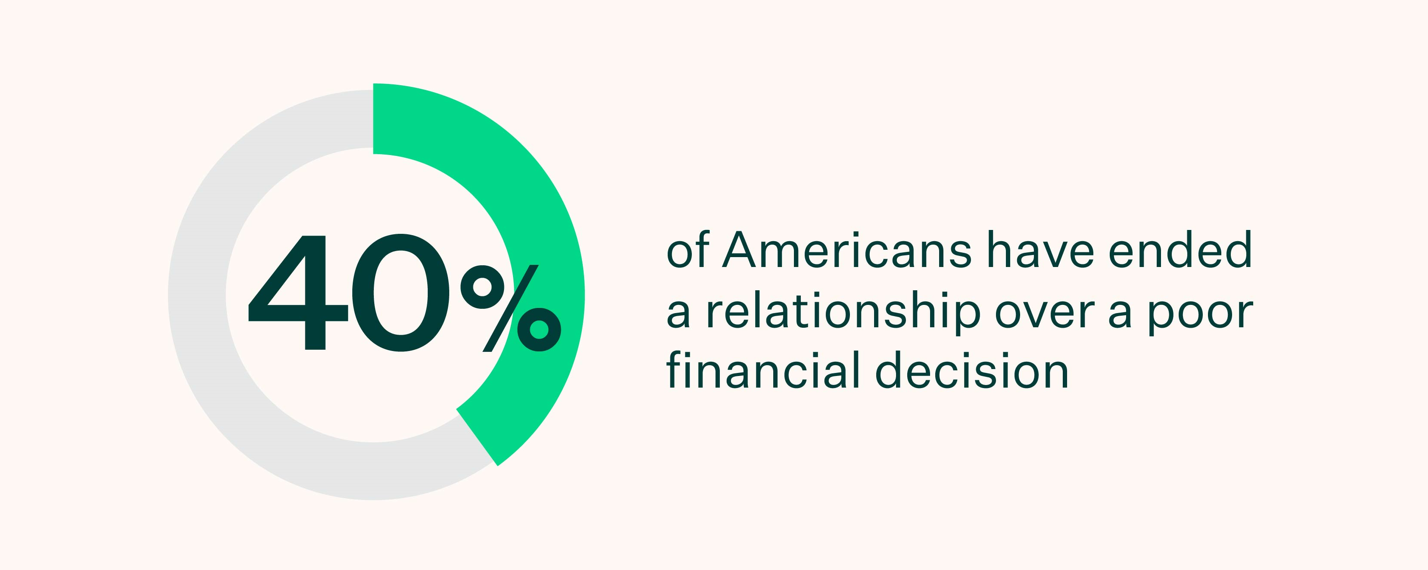
Those surveyed also admit to regrets about decisions they made when they were young (27%) and their career (27%). Interestingly, 23% have misgivings about their partner, and 22% regret certain parenting decisions.
Data from a survey conducted by OnePoll on behalf of SurePayroll from September 13 to September 14, 2023, with a panel of 2,000 general population Americans.
1 Changing Minds: Consumer behavior professor Dr. Steven Stanton emphasizes cutting-edge research on mindset matters, Oakland University Business Insight, Summer 2015.
View Our Plans and Pricing
Small Business Is Our Business.
This website contains articles posted for informational and educational value. SurePayroll is not responsible for information contained within any of these materials. Any opinions expressed within materials are not necessarily the opinion of, or supported by, SurePayroll. The information in these materials should not be considered legal or accounting advice, and it should not substitute for legal, accounting, and other professional advice where the facts and circumstances warrant. If you require legal or accounting advice or need other professional assistance, you should always consult your licensed attorney, accountant or other tax professional to discuss your particular facts, circumstances and business needs.
